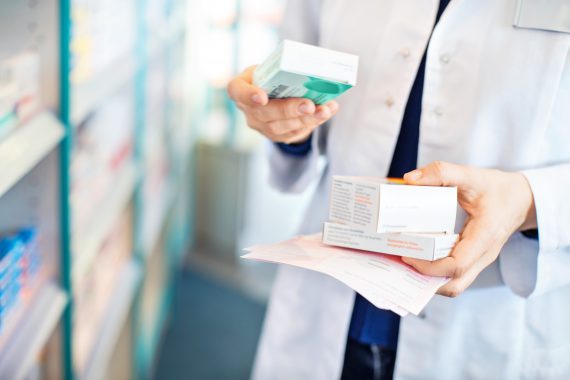Pharmacists to be given power to swap GP prescriptions during shortages from February

Pharmacists will be given the power to swap GP prescriptions for alternatives during shortages, from 9 February, the Government has announced.
Under the Human Medicines (Amendment) Regulations 2019 – presented to Parliament last week and set to come into force next month – pharmacists will be able to alter the strength, quantity or type of drug, without GP permission – as long as it has a similar effect as the original.
The decision to amend the current legislation comes after a Department of Health and Social Care (DHSC) consultation with pharmacists, doctor, and patient representative bodies in December, which looked at potential changes to ensure there is no break in the supply of medication in case of future shortages.
The consultation – prompted by preparations for a possible ‘no deal’ Brexit – said: ‘A serious shortage protocol (SSP) enables retail pharmacists, in the event of a serious shortage of a prescription, to dispense in line with the protocol rather than against a prescription, without going back to the prescriber.’
However, pharmacists will only get these new powers for medicines which ministers have issued an SSP for.
This comes after the Government stressed only last December that there was no need for GPs to stockpile medicines, vaccines, medical devices or clinical consumables, in spite of the uncertainty surrounding Brexit.
In fact, GPs were warned by the health secretary Matt Hancock that any stockpiling would be investigated, adding that the Government has contingency plans to ensure the continued supply of medicines.
Mr Hancock also said GPs should not give patients longer-duration medications because of their concerns over Brexit.
The legislation in full
For the purposes of this regulation, a SSP (serious shortage protocol) is a written protocol that—
(a) is issued by the Ministers (either of them acting alone or both of them acting jointly) in circumstances where the United Kingdom or any part of the United Kingdom is, in the opinion of the Ministers (either of them forming the opinion alone or both of them forming the opinion jointly), experiencing or may experience a serious shortage of a prescription only medicine or prescription only medicines of a specified description;
(b) provides for the sale or supply by or under the supervision of a pharmacist and subject to such conditions as may be specified in the SSP—
- (i) of a different strength, quantity or pharmaceutical form of the prescription only medicine to the strength, quantity or pharmaceutical form ordered by the prescriber, or
- (ii) of a prescription only medicine other than the prescription only medicine ordered by the prescriber;
(c) provides, in a case to which sub-paragraph (b)(ii) applies, that the other prescription only medicine is to be—
- (i) a generic version of the prescription only medicine being substituted, or that both products are generic versions of another prescription only medicine,
- (ii) in the case of a biological medicinal product, a similar medicinal product to the prescription only medicine being substituted, or that both products are similar medicinal products to another biological medicinal product, or
- (iii) a prescription only medicine that has a similar therapeutic effect to the prescription only medicine being substituted; and
(d) specifies the period for which, and the parts of the United Kingdom (which may be all of the United Kingdom) in which, the protocol is to have effect.
Source: The Human Medicines (Amendment) Regulations 2019
Pulse July survey
Take our July 2025 survey to potentially win £1.000 worth of tokens

Visit Pulse Reference for details on 140 symptoms, including easily searchable symptoms and categories, offering you a free platform to check symptoms and receive potential diagnoses during consultations.












